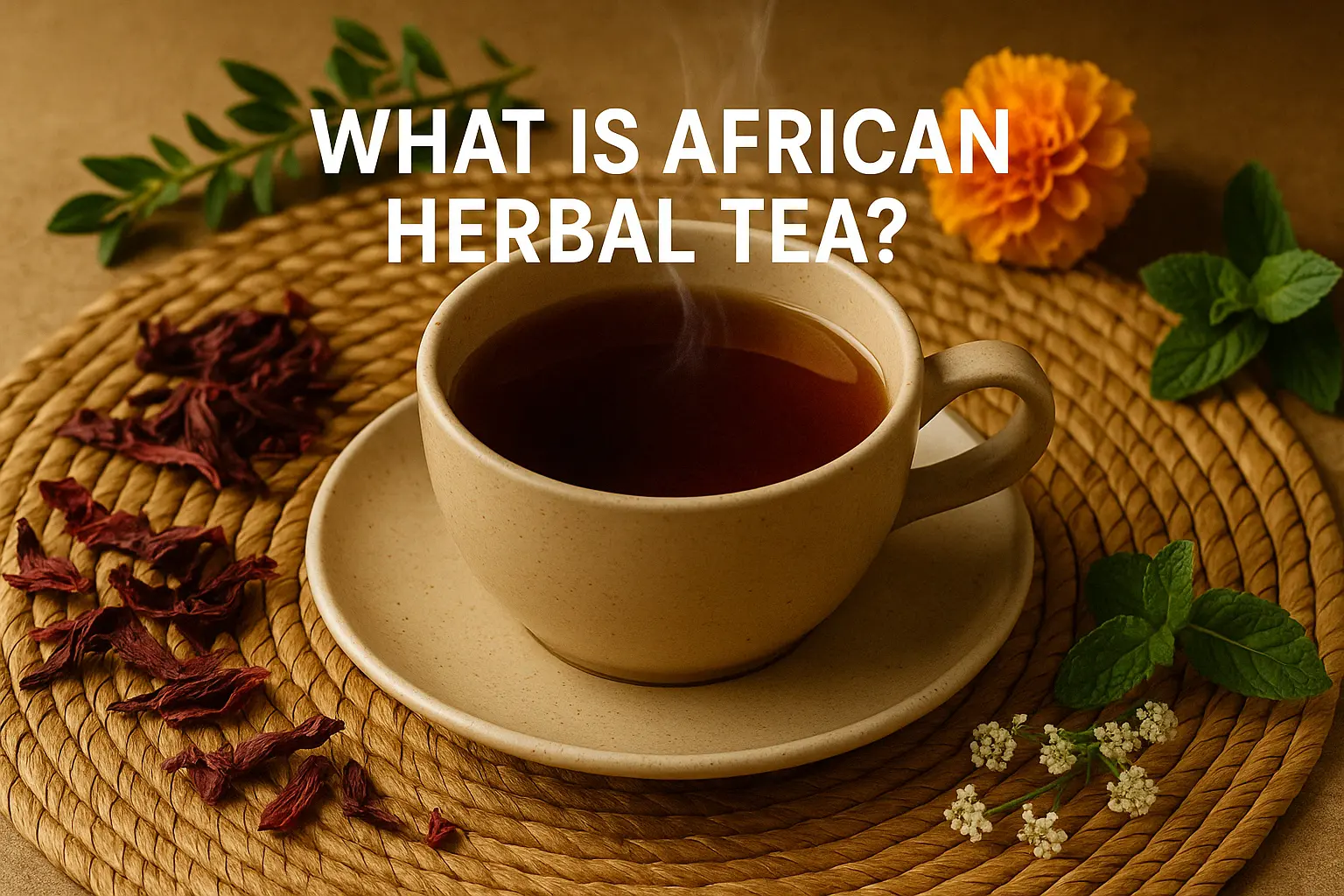African herbal tea is more than a beverage. It is a tradition passed through generations, rooted in the soil, spirit, and science of African healing. Unlike conventional teas made from Camellia sinensis (like green or black tea), African herbal teas are made from indigenous leaves, flowers, bark, seeds, and roots with powerful wellness properties.
From Nigeria’s zobo (hibiscus) to South Africa’s rooibos and Ghana’s lemongrass blends, every region has its own botanical story to tell, one steeped in ritual, respect, and remedy.
Key Benefits of African Herbal Tea
1. Natural Immune Support
Many African herbs, such as hibiscus, baobab, and moringa, are rich in antioxidants and vitamin C, helping to strengthen the body’s natural defenses.
2. Caffeine-Free Wellness
African herbal teas like rooibos and hibiscus offer energy and calm without caffeine, making them ideal for children, nursing mothers, and anyone sensitive to stimulants.
3. Digestive and Anti-Inflammatory Benefits
Ingredients like ginger, lemongrass, and clove are known for soothing digestion, reducing bloating, and calming internal inflammation.
4. Culturally Grounding and Emotionally Calming
Sipping African tea isn’t just about health. It’s about identity, grounding, and taking a moment to reconnect with ancestral rhythm.
How to Use African Herbal Tea
African herbal tea can be enjoyed:
- In the morning, as a gentle, nourishing alternative to coffee
- In the evening, for calm and restoration
- During breastfeeding, to promote milk flow (e.g., nursing teas with fennel or moringa)
- As a daily immune booster for children, using blends like Tropace Immunity Tea
To brew:
Steep 1 teaspoon of herbs in freshly boiled water for 5 to 7 minutes. Sweeten naturally with honey or leave unsweetened for a full-bodied taste.
Read more: Rooibos vs Chai – Which One Is Right for You?
Is African Herbal Tea Safe for Children and Mothers?
Yes, when sourced and prepared properly. At Tropace, we craft all blends with safety, age-appropriateness, and nutrient balance in mind. Our teas are caffeine-free, additive-free, and designed to support both child immunity and maternal wellness.
However, we always advise consulting with a healthcare provider if you’re pregnant or managing a medical condition.
Why Tropace?
Tropace blends premium African botanicals with modern wellness standards to create teas that feel like home, while helping you heal. Every tea bag is a story of culture, care, and clean nutrition for your family.
Explore our wide range of African herbal teas designed for your health, taste, and wellness needs.
Bottom Line
African herbal tea is not just a drink. It’s a journey through time, health, and heritage. Whether you’re boosting immunity, bonding with your child, or finding peace in a moment of calm, Tropace invites you to sip with purpose.
Shop other Tropace company products
FAQ: Frequently Asked Questions
What is African herbal tea made from?
African herbal tea is made from various indigenous plants, including hibiscus (zobo), rooibos, moringa, baobab, and lemongrass, which are known for their medicinal and health-boosting properties.
Can African herbal tea help with breast milk production?
Yes, some African herbal teas like moringa and fennel are known to support milk production in breastfeeding mothers. These teas are safe and caffeine-free, making them ideal for nursing mothers.
Are African herbal teas caffeine-free?
Yes, most African herbal teas, such as rooibos, hibiscus, and moringa, are naturally caffeine-free, making them a great choice for those sensitive to caffeine or looking for a relaxing beverage at any time of the day.
How can I brew African herbal tea?
To brew African herbal tea, steep 1 teaspoon of the chosen herbs in freshly boiled water for 5 to 7 minutes. Sweeten with honey or enjoy it unsweetened for a full-bodied taste.
Is African herbal tea safe for children?
Yes, African herbal teas are generally safe for children when prepared with the right ingredients. At Tropace, we offer blends that are specifically designed to be safe and beneficial for children’s health and well-being.

